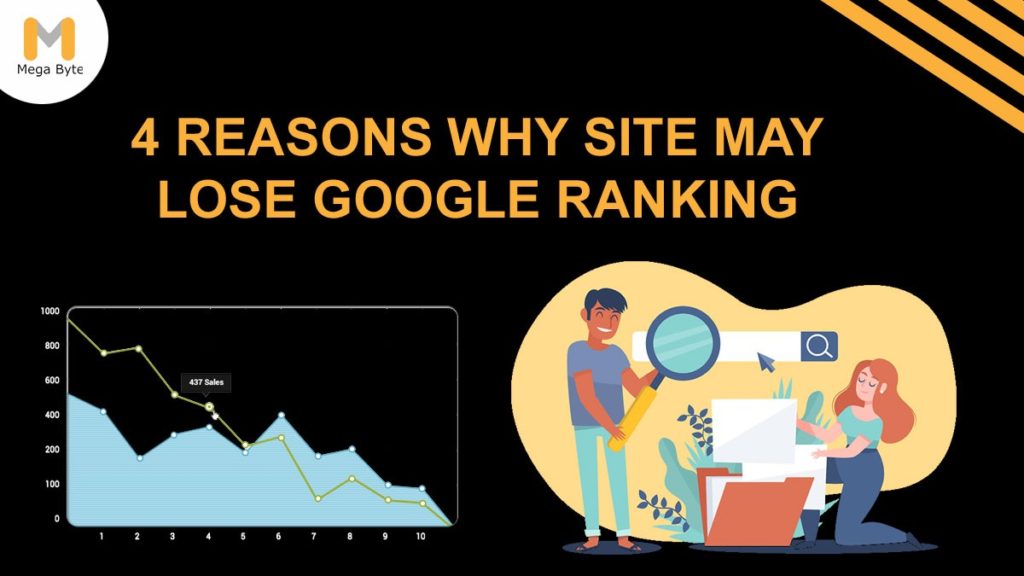Google’s John Mueller offers a general response to why websites may lose rankings.
Somebody asked Google’s John Mueller for what valid reason their site, effective for a long time, has lost keyword rankings. Mueller reacted with four reasons why websites lose Google rankings. I trust it will be a slip-up to expect this is a complete rundown of why destinations lose rankings.
It’s most likely best to comprehend them in the setting wherein the data was given, in an extemporaneous inquiry and answer. His clarification was an overall diagram and not really a total posting of reasons. Many ranking factors can cause your rankings to drop in Google.
All things considered, the appropriate responses give bits of knowledge into why a site may have lost rankings and help start the way toward planning a recuperation plan. Nothing wrong with the site yet lose rankings.
The distributer posing the inquiry related that they had positioned well for seven or eight years. They assessed their inbound and outbound connections and couldn’t discover an issue. Three destinations were affected.
You can get advantages of SEO services and strategies for enhancing your site traffic and ensure that your site will get listed in the relevant searches that will help you to grab more visitors to your website and will help in enhancing your Google ranking. For that you can buy services of best SEO Dubai Company by comparing them on the basis of effective cost and values of the services providing by that digital marketing company or Search Engine Optimization Company.
Each of the three locales utilized similar catchphrases since they sell comparative items under various brands.
Google’s John Mueller on Why Sites Lose Rankings.
John Mueller first clarified that there was insufficient data in the inquiry for giving a particular answer.
He at that point gave an overall answer.
1. Top Rankings Are Temporary-
There’s a sure inclination that once a site is the highest level that it will keep on positioning there. Mueller expressed that rankings are basically impermanent.
Mueller stated:
“All in all, in light of the fact that the site was showing up well in indexed lists for various years doesn’t imply that it will keep on showing up well in query items later on. These sorts of changes are basically not out of the ordinary on the web, it’s a typical unique condition”
2. The Internet Changes All the Time-
Nearly everything on the web is continually evolving. Connections to a site vanish. Contenders again join. Content changes. New sites show up.
These things and a lot more influence on how applicable pages are to look through inquiries.
This is the manner by which Mueller clarified it:
“From one perspective, things on the web change with your rivals, with different destinations… ”
3. Google’s Algorithm Changes-
This is one reason to clarify emotional changes in rankings. What’s more, dislike positioning elements change. At the point when the calculation transforms it may be the case that Google is changing how it comprehends website pages.
Quite a long while back, pages highlighting the top five records appeared to rule the inquiry rankings. That may have been a direct result of how Google comprehended site pages. The top five sort pages were more obvious. In any case, that is not happening any longer because the calculations changed. Typical mix-up distributors make after an update is to search internally at the site to discover what it is the site is fouling up.
Another error is to feel that Google is “focusing on” a sort of site.
Most calculations that are the subject of exploration papers or licenses are not tied in with “focusing on” kinds of destinations or attempting to discover locales that are doing things wrong. A large number of the inquiry related calculations are tied in with fulfilling clients, getting clients, and understanding pages.
This is the thing that Mueller stated:
“Then again things on our side change with our calculations in search.”
4. Individuals Change-
This last motivation behind why destinations lose traffic or rankings is significant.
How and why individuals search can change. What individuals look for can change also. If a sort of item turns out to be less well known, at that point the traffic to destinations about that item will in general wilt. This sort of shriveling of traffic can seem like a long and progressive decrease.
It’s critical to consistently keep on the head of client patterns.
Mueller’s answer:
“Lastly on the client-side also, the desires change after some time.
So on the grounds that something performed well in the past doesn’t mean it will keep on performing admirably in search later on.”
Continuously Keep Updating-
The typical nature of fruitful destinations is that they are continually in development. The site specialized enhancements, client research, client experience upgrades, building up a cozy relationship with webpage guests, those things are a piece of a unique site.
It’s insufficient to siphon out substance. I would say, it’s likewise overly essential to watch out for the crowd and patterns identified with what they are doing. Doing that can uncover new chances and help dodge the moderate whittling down of website traffic.
Keep learning: Most In-Demand LinkedIn Jobs for August 2020


